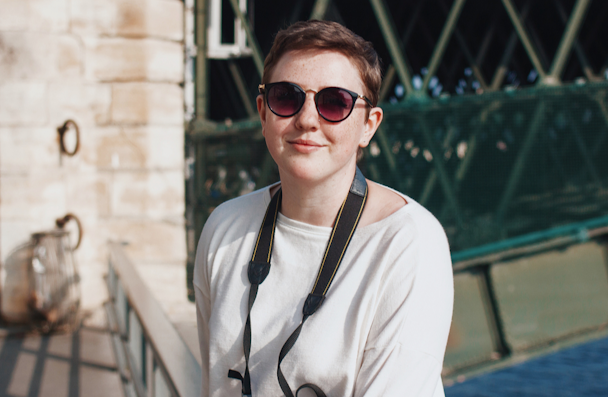Beyond the free fruit bowl: what the ad industry really needs to do on mental health
Last year, on the top deck of the 98 bound for Holborn, I cried quietly.

Beth Grace
My bus pulled into Red Lion Square. I dried my eyes.
I grabbed my bag and walked the 10 minutes left to work.
I chirped hello, rested my head against the kitchen cupboard. Watching on as my water glass overflowed in the sink.
I went on to work until 9pm. I made it home in time to crawl into bed, binge eat and sleep.
The work was made. The client was billed, and the agency was paid. No questions asked, no eyebrows raised.
Over my three years in advertising I’ve worked in multiple agencies and found friends in creative departments at every stage of their careers. And all too often I’ve found that my time back then wasn’t a one-off isolated incident. In reality I was constantly surrounded by people struggling to address their mental health problems for fear of repercussion or appearing weak.
The signs of these struggles are not subtle. Binge eating, binge drinking, dark circles beneath eyes, constant fatigue, a detachment from social occasions and a consistent negative, depressive state. So many of these things are what we as an industry have Stockholm syndromed ourselves into believing are simply the behaviours of hard-working creatives.
But mental health is not a tax that people should have to pay to create within this industry.
Over late-night dinners at our desks, horror stories are traded. Teams one-up each other on their workload, on their last days off, or on how much blow they needed to make it through a Wednesday. Feelings of inadequacy and failure are vented, and a pattern begins to emerge. Impossible turnaround times, overstretched days and mandatory weekend work in pursuit of creativity.
Yet when the courage and vulnerability are mustered to raise these issues, they’re brushed off. Told that this is simply how it is. That timings are tight; clients want more and essentially, just get on with it. These cries for help and change have become the industry’s inside joke.
But when everyone’s gone home and it’s 1am, when our bodies are full of stress-eaten grease, when our eyes are dry, and our brain is banging from the 13th final amend... when all of that sinks in, nobody's laughing.
Because it isn’t funny. Because there is no comedy in the complete ignorance of wellbeing. There is no punchline for a dysfunctional working structure and a complete avoidance of corporate responsibility.
And yet all of this doesn’t stop us. We refuse to relent because we’re driven to create. Because for most of us, this is the first career where we can fulfill our creative needs and afford to eat. Because in this industry we get to feel like a part of something bigger, something that values our craft. We shoulder these negatives because we are told this is the only way the industry works.
But there has to be a better way. And if there isn’t, then we have to make one. So, what can we do? Where do we go from here?
While I don’t have all the answers, I’ve done the digging and secured a few starters for 10.
1. Open the conversation
I’m lucky enough to be at an agency where I feel I can write this piece. Make sure you can have the difficult talks, where you can sit face-to-face with people in your agencies and provide a space free from repercussion. Ask people what is working and what isn’t.
2. Act
Every problem has a solution. It might well take a team and – gasp – a little funding. But there are ways to fix these patterns. And a good place to start is the next point on this list…
3. Research
Industries can and do run in a way that is both more profitable and healthier for the people inside them. One incredible resource that reflects this is Beautiful Brains, the business handbook for mental health – available from Dear Manager. But there are plenty of others that prove the case too.
4. Commit
Mental health is for life, not just for a day, week or month. Invest in the minds you’ve hired, and they’ll invest in you twofold.
The industry needs to go beyond a fortnightly yoga session and a free fruit bowl. To go beyond the twenty minutes suggested breaks and dog days.
Because the current attitude towards mental health is rotting one of the world’s best industries from the inside out and we can’t stand back and watch it happen.
Beth Grace is a creative at The Gate London
